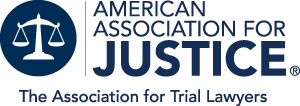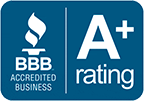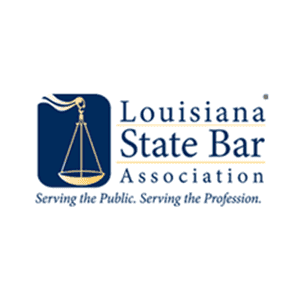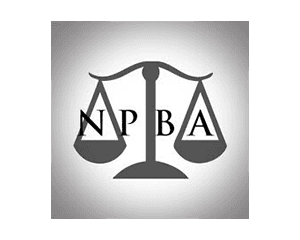
Roanoke Truck Accident Lawyers
Kalfus & Nachman, P.C. is Here to Help
Truck accidents are a serious hazard on our roads and highways. Large trucks can cause severe damage to passenger vehicles, and the resulting injuries can be devastating. If you have been injured in a truck accident, you need an experienced attorney who can fight for you while you focus on making the best possible recovery from injury.
At Kalfus & Nachman, P.C., our Roanoke truck accident attorneys can help you recover the compensation you need to move forward with your life. We can file a personal injury claim on your behalf and handle all communications with the insurance company, so you don't have to.
Contact Kalfus & Nachman, P.C. at (855) 880-8163 to schedule a consultation with our Roanoke truck accident attorneys.
Overview of Federal Trucking Laws
The FMCSA (Federal Motor Carrier Safety Administration) sets and enforces regulations to ensure the safety of commercial motor vehicles (CMVs), including trucks and buses, operating in the United States. These regulations are designed to prevent accidents, injuries, and fatalities involving large vehicles on the road. Below is a simplified explanation of the key FMCSA trucking regulations:
Hours of Service (HOS) Regulations
These rules limit how long commercial drivers can be on duty to reduce fatigue-related accidents.
- 11-Hour Driving Limit: Drivers can drive a maximum of 11 hours after 10 consecutive hours off duty.
- 14-Hour On-Duty Limit: Drivers may not drive beyond the 14th hour after coming on duty, even if they haven't driven for the full 11 hours.
- 30-Minute Break: Drivers must take a 30-minute break after 8 hours of driving.
- 60/70-Hour Limit: Drivers cannot exceed 60 hours on duty in 7 consecutive days or 70 hours in 8 consecutive days.
- 34-Hour Restart: A driver can reset their weekly limit by taking 34 consecutive hours off duty.
Driver Qualification Requirements
Drivers must meet the following qualifications to operate a commercial vehicle:
- Must have a Commercial Driver’s License (CDL).
- Must pass a medical examination and carry a valid Medical Examiner’s Certificate.
- Must be at least 21 years old to drive interstate.
- Must pass background checks for certain materials (e.g., hazardous materials).
Vehicle Maintenance and Inspection
FMCSA requires regular inspection, maintenance, and repair of commercial vehicles.
- Drivers must perform pre-trip and post-trip inspections.
- Carriers must keep maintenance records.
- Vehicles must meet safety standards for brakes, tires, lights, etc.
Drug and Alcohol Testing
To prevent impaired driving, FMCSA mandates testing for:
- Pre-employment
- Random
- Post-accident
- Reasonable suspicion
- Return-to-duty and follow-up testing
All tests are for both alcohol and controlled substances.
Electronic Logging Devices (ELDs)
CMV drivers must use ELDs to record Hours of Service electronically, ensuring compliance and reducing falsification of logs.
Weight and Size Limits
Trucks must comply with federal limits on weight, axle loads, and dimensions unless granted an exception:
- 80,000 lbs is the general maximum gross vehicle weight for interstate travel.
- Size limits include height (13.5 feet), width (8.5 feet), and length (typically 53 feet for trailers).
Safety Ratings and Compliance Reviews
FMCSA monitors carriers using the CSA (Compliance, Safety, Accountability) program.
- Carriers are scored based on safety violations in areas like unsafe driving, HOS compliance, vehicle maintenance, etc.
- Poor scores can trigger audits, penalties, or out-of-service orders.
Insurance Requirements
Motor carriers must carry minimum levels of liability insurance, which vary based on cargo and operations (e.g., $750,000 to $5 million for hazardous materials).
Hazardous Materials Regulations
There are strict rules for transporting hazardous materials, including:
- Special placarding and labeling.
- Proper training and certification for drivers.
- Use of special containers and routing requirements.
Recordkeeping
Carriers must maintain detailed records of:
- Driver qualifications and HOS logs.
- Vehicle maintenance.
- Drug and alcohol testing.
- Insurance and accident reports.
Recovering Compensation in a Truck Accident Case
A truck accident is a collision or incident involving a large commercial truck, often referred to as a semi-truck, tractor-trailer, or 18-wheeler. These accidents can have serious consequences due to the size and weight of these vehicles, which can result in significant property damage, injuries, and even fatalities.
Truck accidents can occur for various reasons, and they can be broadly categorized into several common types:
- Rear-End Collisions: These accidents occur when a truck strikes the vehicle in front of it from behind. They often happen due to a truck driver's inability to stop in time, which can result from factors like speeding, distracted driving, or equipment failures.
- Jackknife Accidents: A jackknife accident happens when a truck's trailer swings outward and forms an acute angle with the cab. This often occurs when the trailer loses traction and skids, potentially causing the truck to fold in on itself.
- Underride Accidents: An underride accident occurs when a smaller vehicle gets wedged under the rear or side of a truck's trailer. These accidents are extremely dangerous, as they can lead to severe injuries and fatalities for the occupants of the smaller vehicle.
- Rollover Accidents: Trucks are prone to rollovers, especially when they take turns too sharply or travel at high speeds. These accidents can result from a combination of factors, such as driver error, overloading, or improper cargo distribution.
- Blind Spot Accidents: Trucks have significant blind spots around them, which can make it challenging for truck drivers to see smaller vehicles. Accidents can occur when a truck changes lanes or makes a turn without realizing a vehicle is in its blind spot.
- Mechanical Failures: Faulty equipment or mechanical failures in the truck, such as brake or steering system malfunctions, can lead to accidents.
- Wide Turns: Trucks require more space to make turns, and sometimes drivers may not judge the space correctly, causing accidents when they collide with other vehicles or stationary objects.
- Hazardous Materials Accidents: Trucks carrying hazardous materials pose additional risks. Accidents involving the release of hazardous substances can have far-reaching consequences, including environmental contamination and health hazards.
Determining Liability in a Truck Accident
In a truck accident claim, several parties may be held liable, depending on the specific circumstances of the accident.
Here are some of the parties that can potentially be held liable in a truck accident claim:
- Truck Driver: The most common party held liable in truck accidents is the truck driver. If the driver's negligence or recklessness, such as speeding, distracted driving, driving under the influence, or violating traffic laws, contributed to the accident, they can be held responsible.
- Trucking Company: The trucking company that employs the truck driver may also be held liable. If the company failed to properly train the driver, enforce safety regulations, or adequately maintain the vehicle, they could share responsibility for the accident.
- Truck Owner: In some cases, the truck involved in the accident may be owned by a different entity than the one operating it. If the truck owner failed to maintain the vehicle or ensure it met safety standards, they may be held liable.
- Cargo Loaders and Shippers: If the accident resulted from improperly loaded or secured cargo, the entities responsible for loading and securing the cargo may be liable. Overloaded or unbalanced cargo can contribute to accidents.
- Maintenance and Repair Providers: If the accident was caused by mechanical failures or faulty equipment, those responsible for maintaining or repairing the truck may be held liable for negligence in servicing the vehicle.
- Manufacturers: If a defective truck part or component contributed to the accident, the manufacturer of that part may be held liable. This can include parts like brakes, tires, or other critical components.
- Government Entities: In some cases, poor road conditions or inadequate road signage can be contributing factors in truck accidents. If the government agency responsible for maintaining the roadways is found negligent, they may share liability.
- Other Drivers: In multi-vehicle accidents involving a truck, other drivers involved may also share liability if their actions contributed to the collision. For example, a car that abruptly changes lanes in front of a truck may contribute to a rear-end collision.
Determining liability in a truck accident claim often involves a thorough investigation, including collecting evidence such as accident reports, witness statements, vehicle data, and sometimes expert analysis. Liability can also be shared among multiple parties, with each party responsible for a portion of the damages.
Trucking Accident Claim FAQs
What should I do immediately after a truck accident in Roanoke?
After a truck accident, prioritize safety and medical care. Call 911 to report the accident and request emergency assistance if needed. Try to gather evidence—take photos, get witness contact information, and obtain the truck driver’s details. Do not admit fault or make statements to insurance adjusters before speaking with a lawyer. Promptly seeking medical attention and contacting an attorney can help protect your rights.
How long do I have to file a truck accident lawsuit in Roanoke?
Under Virginia law, you generally have two years from the date of the truck accident to file a personal injury lawsuit. This is known as the statute of limitations. Failing to file within this timeframe may result in losing your right to seek compensation, so it's important to act quickly.
What kind of compensation can I recover in a truck accident claim?
Victims of truck accidents in Roanoke may be entitled to recover compensation for:
- Medical expenses (past and future)
- Lost wages and loss of earning capacity
- Pain and suffering
- Property damage
- Emotional distress
- In some cases, punitive damages (if the truck driver was grossly negligent)
How is a truck accident different from a regular car accident?
Truck accidents typically involve more severe injuries and damage due to the size and weight of commercial trucks. They also often involve federal and state regulations, multiple liable parties, and complex insurance issues. This makes truck accident claims more complicated and often requires the expertise of a personal injury lawyer familiar with trucking laws.
What evidence is important in a Roanoke truck accident claim?
Key evidence may include:
- The police report
- Photos and videos of the accident scene
- Eyewitness statements
- The truck’s electronic logging device (ELD) data
- The driver’s logbook and employment records
- Maintenance records of the truck
- Black box data
An attorney can help obtain and preserve this crucial evidence.
Do I need a lawyer for a truck accident claim in Roanoke?
Yes, hiring a lawyer is highly recommended for truck accident claims. These cases are often complex, involving commercial insurance companies, federal trucking regulations, and multiple parties. Our Roanoke truck accident attorney can investigate the accident, gather evidence, negotiate with insurers, and fight for full compensation on your behalf.
Ready to Help You
Truck accidents can be extremely serious and can result in life-altering injuries. Kalfus & Nachman, P.C. is ready to protect your rights and best interests from start to finish. We have the experience and resources to hold the liable parties accountable for their negligence and maximize your entitled compensation.
Contact our Roanoke truck accident lawyers today at (855) 880-8163 to learn more about your legal options.

How Is Kalfus & Nachman Different?
-
You Will Pay No Fees Unless We Win Your Case
-
We Have Recovered Millions of Dollars for Our Clients
-
Our Attorneys Are Well-Equipped to Fight Insurance Companies
-
We Have Successfully Handled Thousands of Cases Since 1979
-
We are a Full-Service Firm with Multiple Locations
-
Se Habla Español

Awards & Accolades

We Mean Business
Read Our Recent Case results
-
$10.9 Million Traumatic Brain Injury
-
$10.5 Million Truck Accident
-
$7 Million Auto Accident
-
$5.147 Million Truck Accident
-
$2.15 Million Premises Liability

Meet Our Team
Tell Them We Mean Business
-
 Paul R. Hernandez Attorney
Paul R. Hernandez Attorney -
 A.J. Kalfus of Counsel
A.J. Kalfus of Counsel -
 Stuart L. Nachman of Counsel
Stuart L. Nachman of Counsel -
 Richard F. Aufenger, III of Counsel
Richard F. Aufenger, III of Counsel -
 Jesse M. Suit III of Counsel
Jesse M. Suit III of Counsel -
 Thomas A. Fitzgerald, II Attorney
Thomas A. Fitzgerald, II Attorney -
 Seth D. Scott Attorney
Seth D. Scott Attorney -
 Christopher I. Jacobs Attorney
Christopher I. Jacobs Attorney -
 Michael J. Levens Attorney
Michael J. Levens Attorney -
 Colin P. O'Dawe Attorney
Colin P. O'Dawe Attorney -
 Neal C. Schulwolf Attorney
Neal C. Schulwolf Attorney -
 Deborah B. Vaughn Attorney
Deborah B. Vaughn Attorney -
 Michael Sternberg Attorney
Michael Sternberg Attorney -
 Olivia T. Donahue Attorney
Olivia T. Donahue Attorney -
 Brian A. Thomasson Attorney
Brian A. Thomasson Attorney -
 Jeffry A. Sachs Attorney
Jeffry A. Sachs Attorney -
 Gregory E. Camden Attorney
Gregory E. Camden Attorney -
 Gregory L. Sandler, Esq. Attorney
Gregory L. Sandler, Esq. Attorney -
 Massimo Morabito Attorney
Massimo Morabito Attorney



































